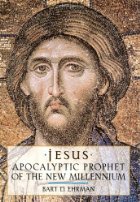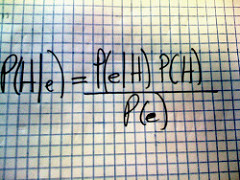 First let it be clear where I am coming from. This is not an attack on any scholar or the scholarship of theologians in general. It is an attempt to address what strikes me as very muddled thinking in many works about the historical Jesus. That is not a denigration of the scholars in question or the works they have produced. It is forthright attempt to address an assumption or understanding that appears to be generally overlooked. If my views are wrong then I would expect someone somewhere who knows better can point out in a reasoned explanation where and why they are wrong. That would cause me some embarrassment, no doubt, but at least I would be given the opportunity to change my views. I resolved long ago to be prepared to take the consequences of striving to be honest with myself in place of living a lie. But if the only response continues to be ridicule or insult or silent dismissal I will have no reason to think my criticism is invalid.
First let it be clear where I am coming from. This is not an attack on any scholar or the scholarship of theologians in general. It is an attempt to address what strikes me as very muddled thinking in many works about the historical Jesus. That is not a denigration of the scholars in question or the works they have produced. It is forthright attempt to address an assumption or understanding that appears to be generally overlooked. If my views are wrong then I would expect someone somewhere who knows better can point out in a reasoned explanation where and why they are wrong. That would cause me some embarrassment, no doubt, but at least I would be given the opportunity to change my views. I resolved long ago to be prepared to take the consequences of striving to be honest with myself in place of living a lie. But if the only response continues to be ridicule or insult or silent dismissal I will have no reason to think my criticism is invalid.
Often when I read a scholarly study of the historical Jesus I am a little dismayed at the woolliness of the ideas addressed. I have slowly become convinced that very few scholars who have written about the historical Jesus have ever studied what history even is. Very often historical evidence is confused with stories or an assumption that a story must be derived from real happenings.
Now I do understand that when Bart Ehrman wrote Jesus: Apocalyptic Prophet for a New Millennium (=JAPNM), he wrote it not for his scholarly peers but for a wider public:
Scholars have written hundreds of books about Jesus . . . . A good number of these books, mainly the lesser-known ones, have been written by scholars for scholars to promote scholarship; others have been written by scholars to popularise scholarly views. The present book is one of the latter kind . . . . (p. ix)
The woolliness of thinking about the distinction between the narrative of an event and evidence for a real historical event, and even about the nature of history itself, is a critical consideration given that Ehrman also writes in the same preface:
The evidence itself plays a major role in this book. Most other popular treatments of Jesus rarely discuss evidence. That’s a particularly useful move — to avoid mentioning the evidence — if you’re going to present a case that’s hard to defend. Maybe if you just tell someone what you think, they’ll take your word for it. In my opinion, though, a reader has the right to know not only what scholars think about Jesus . . . but also why they think what they think. That is, readers have a right to know what the evidence is. (p. x)
Since my first draft of this post a new book by Ehrman has appeared (Did Jesus Exist? =DJE) in which he underscores the same fallacies running through JAPNM and adds a raft of new ones. For example, he lists a number of sources that he says historians can rely upon to establish the historical existence of a person while failing to notice that a number of the sources he lists can just as easily be used to argue for the historical existence of several pagan gods and demi-gods. (No wonder he finds they conveniently support the historicity of Jesus!) Equally bad, almost all of them ultimately beg the question of historicity rather than confirm it. I will discuss the logical fallacies inherent in his list in a future post.
What is history?
There are two fundamentals that I learned in about history in my senior history classes.
- The first thing I learned in my history class at senior high school was what history is not. History is not a list of facts, dates and events. A list of events is a chronicle, not history. History is the study of past events, an exploration in understanding those events, the composition of a narrative to convey some story or meaning from those past events. Such a narrative invests the “facts” with interpretation and meaning.
- The second was that when it comes to ancient history historians can only study questions for which we have enough raw material to research. We can’t write a biography of Socrates examining the range of formative influences upon his thinking and assessing how much of his contribution to Greek philosophy was unique to his own genius, for example.
Let’s unpack these a little. Continue reading “Historical Jesus Studies As Pseudo-History — Bart Ehrman’s Jesus As a Case-Study”
Like this:
Like Loading...



